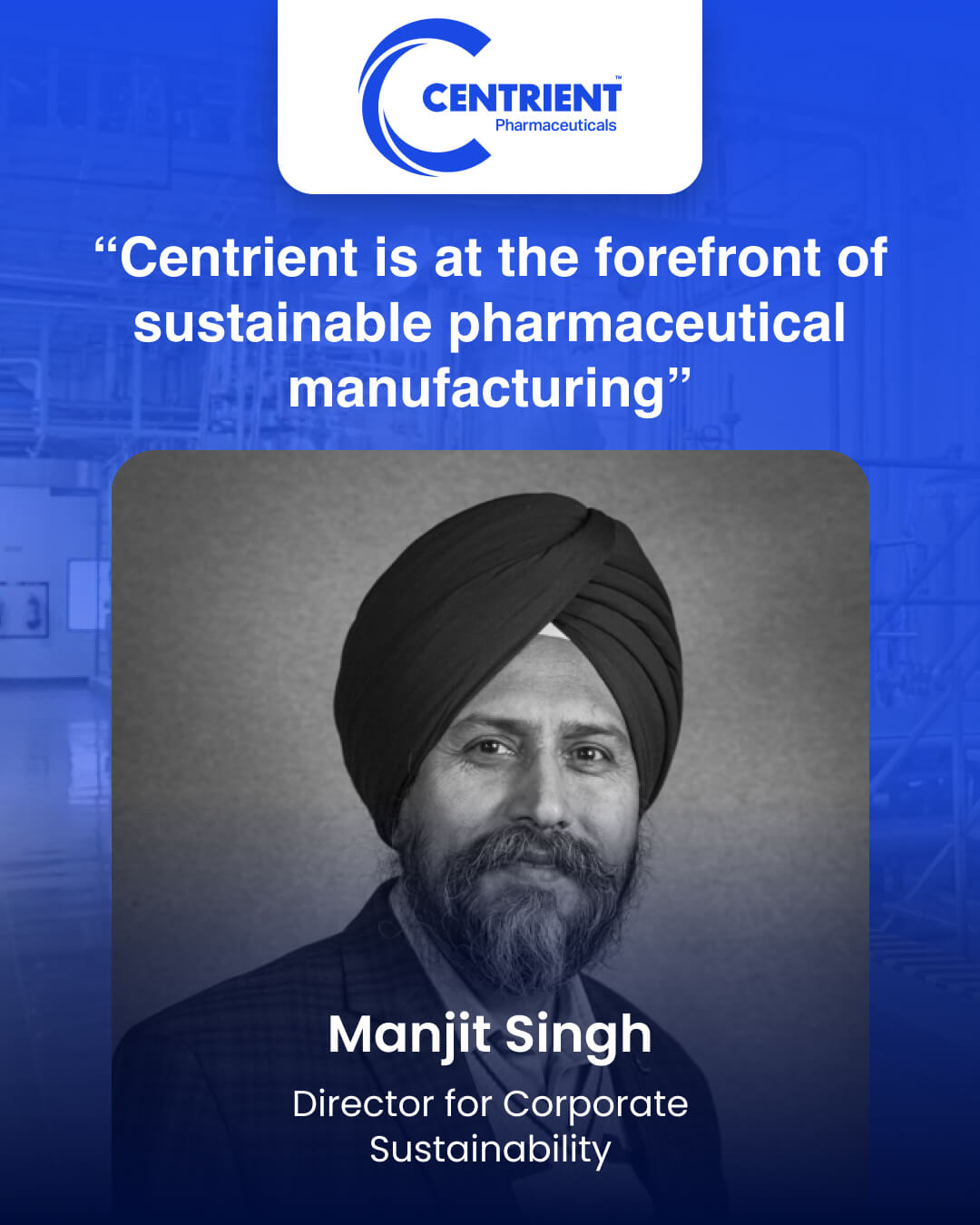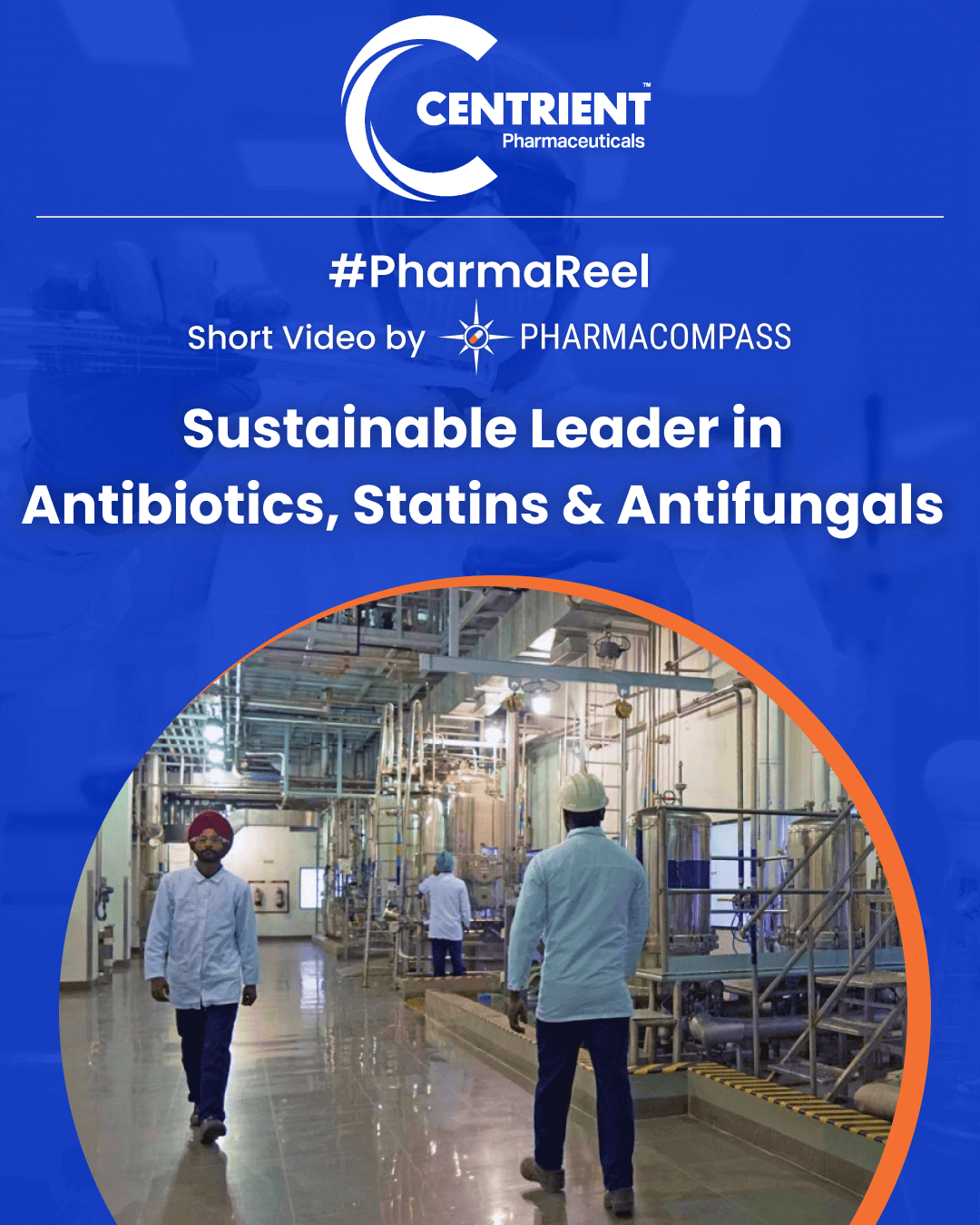
#SpeakPharma with Centrient Pharmaceuticals
2023-04-21
Impressions: 2713
One of the most pressing problems today is environmental pollution. Every year, the world comes together on April 22 to celebrate Earth Day. This year’s Earth Day calls on governments, institutions, businesses, and citizens to invest in the planet by addressing the issues of climate change, air and water pollution, deforestation, and plastic overconsumption. According to the World Health Organization (WHO), healthier environments can prevent almost a quarter of the world’s disease burden.
This week, SpeakPharma spoke to Manjit Singh, Director for Corporate Sustainability at Centrient Pharmaceuticals, a global B2B leader in sustainable, enzymatic antibiotics, next-generation statins and anti-fungals, about sustainable manufacturing.
How are pharma companies addressing the issue of environmental sustainability? What goals have you set for reducing your environmental impact?
The global pharma industry is a major polluter. During the past decade, the intensity of greenhouse gas emissions generated by the pharma industry was approximately 55 percent greater than that of the automotive industry. The industry must work together to systematically consider the environmental impact of the products it manufactures.
Today, many companies incorporate carbon emissions reduction, responsible waste and water management, and renewable energy sourcing as core environmental, social, and governance (ESG) goals. The growing demand for environmental sustainability also affects pharmaceutical companies’ supply chains and procurement practices.
One of the biggest environmental issues we face as a society is CO2 emissions. It’s a major focus area for many companies. At Centrient, we have set a goal of reducing our carbon emission intensity by 50 percent by 2030 through increased reliance on renewable energy. We are committed to going through third-party assessments and ratings like EcoVadis and SBTi (Science Based Targets initiative) to be transparent about our progress towards emissions reduction targets.
Another key issue is wastewater management. Pharmaceutical manufacturing, particularly antibiotic production, is a highly water-intensive process. We produce all our antibiotics using a proprietary enzymatic process. This process requires less water and energy and doesn’t use chemical solvents or other harmful substances.
What is antimicrobial resistance, and how does it affect human health and the environment?
Antimicrobial resistance or AMR occurs when bacteria, viruses, fungi, and parasites change over time and stop responding to medicines. Antibiotics and other antimicrobial drugs become ineffective, and infections become increasingly difficult or impossible to treat, making routine medical procedures, such as surgery — including C-sections, hip replacements, and organ transplantations — riskier. For example, AMR is the second leading cause of death in cancer patients.
The WHO currently lists AMR among the top 10 threats to global health. By 2050, up to 10 million deaths could occur annually due to AMR.
When it comes to pharmaceutical manufacturing, release of antibiotics in high concentrations from manufacturing sites can contribute to new forms of resistance in pathogens. In 2016, we became one of the first pharmaceutical companies to begin the continuous, year-round monitoring of antimicrobial activities in wastewater at all our sites in Europe and beyond. Since then, we have developed an innovative way of detecting very low antibiotic activity levels – as low as 50 parts per billion – in wastewater. In May 2022, we became the first pharma company to meet the stringent PNEC (short for Predicted No-Effect Concentration) discharge targets for our complete oral antibiotics product range and their supply chains. The final step in this process will be to obtain an external PNEC certification.
We are one of the first companies to participate in a pilot certification scheme designed by the British Standards Institution (BSI) in collaboration with the AMR Industry Alliance.
As a former chair of the Pharmaceutical Supply Chain Initiative (PSCI), what’s your view on the recent developments in sustainable procurement?
Along with responsible manufacturing, the industry must ensure that the procured raw materials come from cleaner sources. Some European governmental agencies already incentivize responsible manufacturing and compliance while procuring antibiotics from suppliers. For example, at Centrient, our suppliers are assessed by PSCI-approved audit firms and in-house assessments. This covers labor and human rights, ethics, health and safety, the environment, and management systems.
What are your sustainability tips for Earth Day?
To make a positive impact on Earth Day, individuals can clean up their communities, plant more trees, reduce the use of plastic, and reuse and recycle more things. Similarly, manufacturers must consider the negative impact of their operations on the environment and make sustainability a part of their business strategy.
At Centrient, our sustainability efforts are geared towards creating value for all our stakeholders, driving sustainable growth with our customers, and creating a more sustainable world for future generations.






